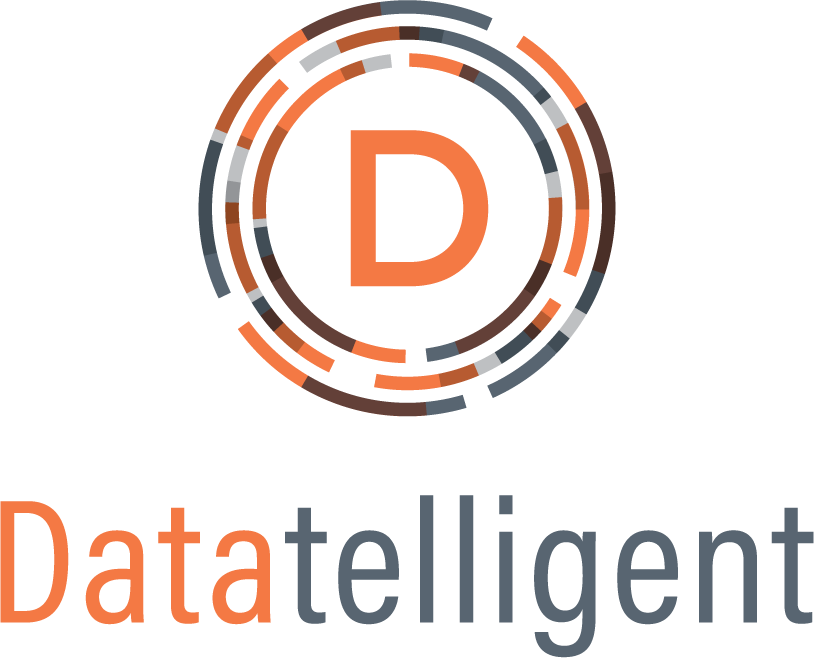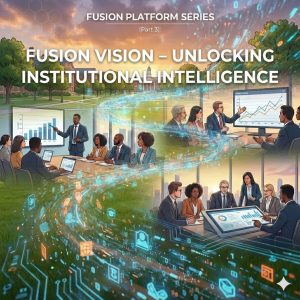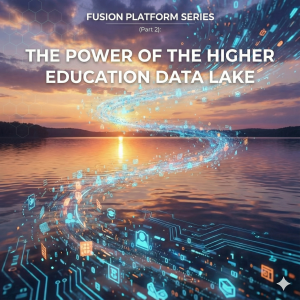CAUTION: AI APPROACHING HIGHER EDUCATION
INTRODUCTION
Interest in Artificial Intelligence (AI) is growing across all industries, spurred by daily advancements that showcase its potential to enhance efficiency and predict trends. Higher education institutions, faced with declining enrollments in part due to shifting demographics, are especially interested in using AI to improve their operations around student recruitment and retention. But before colleges and universities start using AI, it is crucial to consider the responsible incorporation of AI, ensuring its use enhances existing processes while mitigating potential pitfalls.
ethical considerations
Using historical data by AI introduces the risk of perpetuating existing biases, a challenge highlighted by Amazon’s reevaluation of an AI recruitment tool biased against female candidates¹. Similarly, the application of AI in risk assessments within the legal system² has faced scrutiny for racial biases. These examples underline the urgent need for comprehensive AI governance frameworks, discussed during the March 2024 Data Analytics Alliance for Higher Education meeting, that prioritize ethical data use and rigorous oversight to combat bias.
AI “Hallucinations” and Misinformation
PRIVACY AND SECURITY
The deployment of AI in analyzing large datasets accentuates privacy and security concerns, particularly around the potential for de-anonymization. AI’s ability to infer sensitive personal information from non-sensitive data⁶ introduces new data protection challenges. Therefore, adopting AI technology requires robust privacy safeguards, including secure platform designs and ethical data handling practices.
DATA IS THE KEY
To navigate these challenges and lay the groundwork for effective AI implementations, the use of a Unified Data Platform (UDP) is vital. A UDP consolidates and harmonizes data from diverse systems, ensuring AI models are trained on high-quality, comprehensive datasets. Key characteristics of an effective UDP include:
- Centralized Data: Aggregates data from various institutional systems and external sources, providing a complete data ecosystem for accurate AI analysis.
- Scalability: Offers a scalable infrastructure to accommodate increasing data volumes and complex AI use cases.
- Robust Security Measures: Incorporates advanced security features to protect sensitive data, ensuring privacy and compliance with data protection laws.
- AI-Ready Infrastructure: Facilitates the deployment of AI by ensuring the platform and tools are primed for AI applications, supporting advanced analytics, and making data AI-ready.
HOW TO GET STARTED
In response to growing inquiries from our higher education customers interested in AI, Datatelligent recommends that customers consider its Datatelligent Platform for Higher Education, which leverages a UDP to develop standard analytic solutions that most colleges and universities need. Karl Oder, one of the Chief Architects of the platform, talked about what we are doing with the platform. “We’re busy creating several AI prototypes with our partner, Snowflake, using the AI-Ready tools they provide.”
In addition to getting your data “AI-ready” by establishing a UDP, schools should also spend time prepping for the AI Project⁷, starting with selecting the right use case. For higher education institutions, Datatelligent has developed prototypes on our platform that can accelerate this process, including:
- Admissions and enrollment – predictive factors that will influence admissions and student enrollment projections
- Student success and retention – identifying student success characteristics and predicting students at risk of leaving.
- Graduation and program success – predictive factors driving graduation rates and overall program success.
CONCLUSION
Integrating AI in higher education calls for a balanced, thoughtful approach that acknowledges AI’s transformative potential alongside its challenges. By addressing issues of bias, misinformation, privacy, and ethical governance through strategic planning, institutions can harness AI to enhance educational outcomes and operational efficiency. Central to this endeavor is establishing a Unified Data Platform, ensuring data integrity, and laying a solid foundation for the responsible use of AI technologies.
RESOURCES:
CITATIONS:
- Dastin, Jeffrey. “Insight – Amazon Scraps Secret AI Recruiting Tool that Showed Bias against Women.” Reuters, August 10, 2018. https://www.reuters.com/article/us-amazon-com-jobs-automation-insight/amazon-scraps-secret-ai-recruiting-tool-that-showed-bias-against-women-idUSKCN1MK08G/.
- Angwin, Julia , Surya Mattu, and Lauren Kirchner. “Machine Bias.” Pro Publica, May 23, 2016. https://www.propublica.org/article/machine-bias-risk-assessments-in-criminal-sentencing.
- “What Are AI Hallucinations?” IBM.Com. February 1, 2024. https://www.ibm.com/topics/ai-hallucinations.
- Mihalcik, Carrie. “Google ChatGPT Rival Bard Flubs Fact About NASA’s Webb Space Telescope.” CNET, February 9, 2023. https://www.cnet.com/science/space/googles-chatgpt-rival-bard-called-out-for-nasa-webb-space-telescope-error/.
- McMillan, Malcolm. “Bing ChatGPT Goes off the Deep End — And the Latest Examples Are Very Disturbing.” Tom’s Guide, February 17, 2023. https://www.tomsguide.com/opinion/bing-chatgpt-goes-off-the-deep-end-and-the-latest-examples-are-very-disturbing.
- Ahmed, Hafiz. “Challenges of AI and Data Privacy—And How to Solve Them.” @ISACA 32, (2021). https://www.isaca.org/resources/news-and-trends/newsletters/atisaca/2021/volume-32/challenges-of-ai-and-data-privacy-and-how-to-solve-them.
- Sassi, Steve. “AI Project Prep for Higher Education.” Datatelligent.Ai. March 26, 2024. https://datatelligent.ai/ai-project-prep-for-higher-education/.





